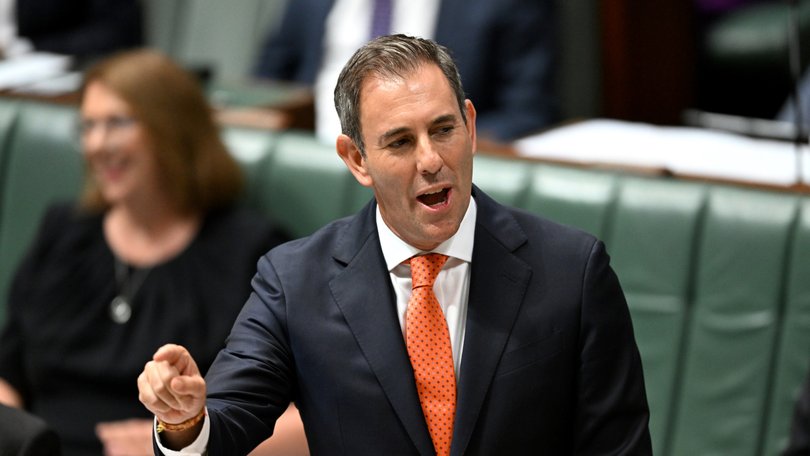Treasurer Jim Chalmers looking for second budget surplus but is ‘not there yet’
Jim Chalmers is hoping to deliver his second Budget surplus in three weeks’ time, but the Treasurer cautions volatile iron ore prices mean he isn’t quite there yet.

Jim Chalmers is hoping to deliver his second Budget surplus in three weeks’ time, but the Treasurer says volatile iron ore prices mean he isn’t quite there yet.
Treasury has downgraded its growth forecasts for major economies after Dr Chalmers’ meetings with the International Monetary Fund and the World Bank, as well as G20 counterparts in Washington last week.
The global pressures mean Dr Chalmers is now shaping a Budget that will still focus on countering inflation in the near term but flip to a longer-term focus on economic growth.
Sign up to The Nightly's newsletters.
Get the first look at the digital newspaper, curated daily stories and breaking headlines delivered to your inbox.
By continuing you agree to our Terms and Privacy Policy.“Our objective is still a second surplus. We’re not there yet,” he said on Monday.
“The degree of difficulty on that has come up a bit but that is still our objective.
“We do not expect anything like the kind of revenue upgrades that we’ve seen in the first couple of budgets and that, as well as challenges in the global economy but also our domestic economy, necessitates a slightly different approach.”
Treasury figures released earlier in the month showed the fall in iron ore prices from $130 a tonne at the start of the year to $90 last month had wiped about $9 billion from the budget forecasts.
“Obviously, there’s been a little tick-up in the iron ore price in the last few days over the last week or so, that’s welcome but we’re still not getting anything like what we’re getting at the start of the year,” Dr Chalmers said, labelling commodity prices and revenue one of his primary concerns.
Quarterly inflation figures out on Wednesday will add the the picture but the Government is conscious that while inflation has fallen substantially, households are still feeling significant cost of living pressures.
“We know that it’s not mission accomplished because people are still hurting,” the Treasurer said.
The main cost-of-living measure in May’s budget books is expected to be the revamped stage three tax cuts, which now will offer relief to every taxpayer from July.
However, Dr Chalmers said this would not be the only help coming.
“If it’s affordable, if it’s responsible, if it’s meaningful, and it takes some of the edge off inflation rather than add to the inflation problem, then that is attractive to us,” he said of new measures.
“We’ve just got to make all the numbers add up. That’s what the next couple of weeks are about.”
Cabinet’s expenditure review committee is weighing up whether it can lower indexation on HECS repayments or create paid placements for university students in subjects like nursing and teaching where they are required – or do both.
It is also considering more support for the care sector including mandated pay increases for aged care workers and possible boosts for childcare educators, and finalising industry support and tax breaks to come under the Future Made in Australia umbrella scheme.
Dr Chalmers said this would form a significant piece of the budget but would not be “some kind of free-for-all of taxpayer money”.
Originally published on The Nightly

